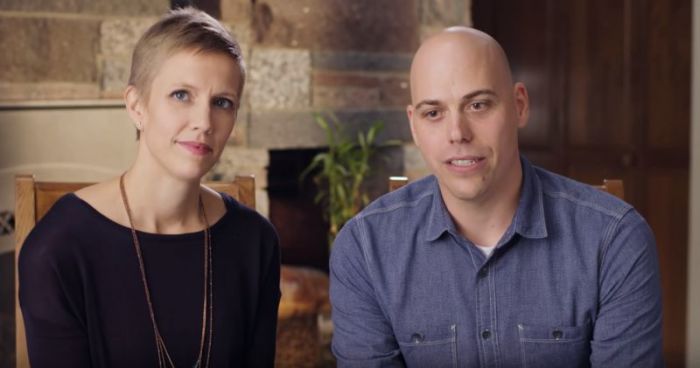Minnesota continues fight against Christian couple who refuse to film gay weddings

The state of Minnesota is continuing its legal battle against a film company headed by a Christian couple who are opposed to filming same-sex wedding ceremonies.
In August, a three judge panel of the U.S. Court of Appeals for the Eighth Circuit ruled that the Minnesota Human Rights Act violated the constitutional rights of Carl and Angel Larsen of Telescope Media Group.
Minnesota Attorney General Keith Ellison and Minnesota Human Rights Commissioner Rebecca Lucero announced Wednesday that they are going to continue their legal defense of the Human Rights Act.
“Telescope wants to breach common decency on the grounds of ‘free speech.’ But their right to believe what they want is already fully protected,” they argued in an opinion column for the Star Tribune.
“What they’re asking for is a license to discriminate against LGBTQ folks that could open up a can of worms for everyone.”
Ellison and Lucero added that they're planning to take the case back to the district court level, as they believe the U.S. Supreme Court would rule against them.
“In the meantime, we’re going to keep honoring the First Amendment, which allows everyone to believe what they want no matter how much we may disagree with them, and keep enforcing the Human Rights Act,” they continued.
Jeremy Tedesco of the law firm Alliance Defending Freedom, which is representing the Larsens, said in a statement released Thursday that his organization intends to secure “a final victory that prevents the state from using its power to banish people of faith from the public square.”
“Carl and Angel won a great free speech victory at the 8th Circuit, which rightly affirmed that the government has no power to force people to express messages that violate their deepest convictions. This principle protects everyone,” Tedesco said.
“After the Larsens won at the 8th Circuit, the Minnesota attorney general agreed to an order from the court preventing it from enforcing the law against the Larsens while the case proceeds.”
In December 2016, the Larsens filed a complaint against the MHRA's ban on sexual orientation discrimination, arguing that the measure would force them to film same-sex weddings, for which they religiously object to doing.
U.S. District Court Judge John Tunheim ruled against them in September 2017, concluding that the law is "neutral" in its application and dismissed the Larsens’ concerns as “immaterial.”
However, in August, a three-judge Eighth Circuit panel ruled in their favor, with Circuit Judge David Stras stating the majority opinion that “antidiscrimination laws, as critically important as they are, must yield to the Constitution.”
“Indeed, if Minnesota were correct, there is no reason it would have to stop with the Larsens. In theory, it could use the MHRA to require a Muslim tattoo artist to inscribe ‘My religion is the only true religion’ on the body of a Christian if he or she would do the same for a fellow Muslim, or it could demand that an atheist musician perform at an evangelical church service,” Judge Stras wrote.
“The district court also ruled that the Larsens could not seek relief on various other constitutional theories. We largely agree that these claims fail. But one—the free-exercise claim—can proceed because it is intertwined with their free-speech claim.”
Circuit Judge Jane Kelly authored an opinion that dissented in part, arguing that while objections to same-sex marriage are protected by the First Amendment, these protections do not apply to businesses.
“The Larsens remain free to communicate any message they desire—about same-sex marriage or any other topic—or no message at all,” Kelly wrote.
“What they cannot do is operate a public accommodation that serves customers of one sexual orientation but not others. And make no mistake, that is what today’s decision affords them license to do.”




























